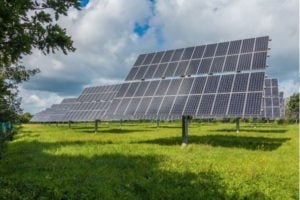Deadline: February 17, 2026
The European Commission announces a call for innovative solutions aimed at developing a generative AI-powered digital spine for the EU energy system to accelerate decarbonisation and enhance digitalisation.
The focus areas include developing and testing generative AI to develop applications for local system optimisation and for system planning and operation; identifying sources of flexibility and providing solutions for interoperability and data exchange to enable decentralised optimisation of distributed assets; exploring generative AI for system optimisation through scenario generation, simulation, and forecasting; and proposing tools and control systems to apply generative AI solutions in a high-risk use case as defined in the AI Act.
This initiative addresses the need for a smart, digitally enabled energy system capable of integrating higher shares of renewable energy and electrification of demand and electricity storage across various sectors such as transport, industry, and residential heating. It focuses on smart planning, operation, and control of the electricity grid and distributed devices, including smart electricity meters, bi-directional charging networks for electric vehicles, and smart building platforms, all supported by markets for flexibility and demand response along with seamless data exchange between actors and devices.
The project aims to develop an automated, AI-powered, software-defined smart energy system leveraging existing open-source digital solutions and AI algorithms provided by the AI Factories. The solutions should be dynamic and flexible, offering reconfigurable automated management, control, and data exchange to ensure seamless operation across decentralised settings. The prototypes will demonstrate AI-powered energy services, tools for power system planning and operation, and smart grid functionalities such as flexibility and electric vehicle charging, covering at least three EU member states or associated countries.
The development involves the involvement of traditional energy stakeholders alongside new entrants such as energy service companies, aggregators, digital infrastructure providers, system integrators, energy asset manufacturers, energy communities, and active consumers. The project will leverage relevant European and international standards, actively engage with standards development organisations, and contribute to the BRIDGE initiative. It will build on prior Horizon Europe projects, particularly those related to flexibility markets, data exchange, Internet of Things, and edge-cloud computing.
The new AI solutions must demonstrate integration with or replacement of existing legacy systems, including core grid operation functions like SCADA systems functionality. The consortium will provide a diverse set of applications for generative AI while adhering to compliance requirements such as the AI Act. By coordinating efforts across multiple EU and associated countries and pooling vast data sources, this program aims to accelerate decarbonisation, increase flexibility, and promote sectoral coupling within an efficient and resilient digital energy infrastructure.
The Commission estimates that an EU contribution of around EUR 8.00 million would allow these outcomes to be addressed appropriately. Nonetheless, this does not preclude submission and selection of a proposal requesting different amounts.
The total indicative budget for the topic is EUR 16.00 million.
For more information, visit EC.























